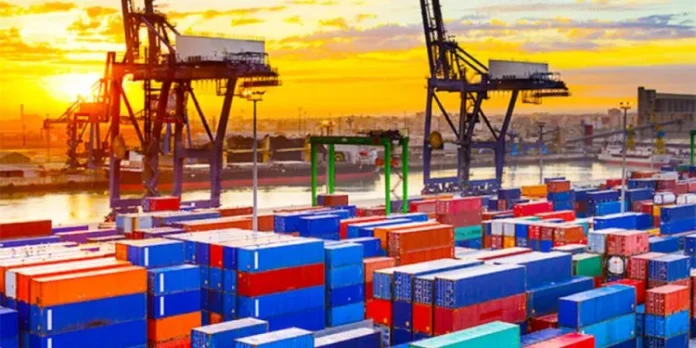Ghana’s foreign exchange shortage has created opportunities for politically connected groups to exploit cargo auctions at the country’s ports, according to the Importers and Exporters Association of Ghana, which is demanding immediate government intervention.
The trade organization claims that dollar scarcity prevents importers from clearing shipments promptly, forcing goods onto the Uncleared Cargo List where regulatory changes have shortened grace periods and enabled systematic exploitation.
According to IEAG, the legal 60-day window for clearing goods before auction has been quietly reduced to 21 days. This compressed timeline allows connected businessmen to acquire stranded cargo at below-market prices through auctions that allegedly bypass proper legal procedures.
The association describes a system where original importers lose their shipments while continuing to pay demurrage charges, while new owners secure the goods after paying minimal service fees between GH¢6,000 and GH¢10,000. Many auctions reportedly occur without proper gazetting or legal oversight.
The consequences extend beyond individual business losses, IEAG argues. The state loses revenue through undervalued auctions while Ghana’s reputation as a reliable trading destination suffers, potentially deterring both local and foreign investment.
“This situation has triggered a chain of damaging consequences,” the association stated, highlighting how forex constraints have evolved from a financial challenge into a broader crisis affecting trading confidence.
IEAG has presented specific demands to address the crisis. The organization wants restoration of the full 60-day UCL grace period, introduction of first-time clearance options for forex-constrained importers, and comprehensive investigations by Customs and security agencies into what it terms a “political cabal” profiteering from the auctions.
The association also calls for Bank of Ghana intervention to ensure commercial banks provide foreign exchange at transparent rates. Without swift action from authorities, IEAG warns it may resort to mass protests.
The allegations reflect broader concerns about Ghana’s forex market dynamics, where persistent dollar shortages have created bottlenecks across multiple sectors. Import-dependent businesses have faced increasing difficulties accessing foreign currency through official banking channels.
Port operations represent a critical component of Ghana’s trade infrastructure, handling the majority of the country’s imports. Disruptions to normal clearance procedures could affect broader supply chains and consumer goods availability.
The shortened clearance timeline appears to contradict established trade practices designed to provide importers reasonable time to secure financing and complete documentation. The 60-day period traditionally allowed businesses flexibility to navigate temporary cashflow challenges without losing their investments.
IEAG’s corruption allegations suggest that regulatory changes may have created unintended opportunities for rent-seeking behavior. The organization’s call for security agency involvement indicates concerns about potential criminality beyond simple policy adjustments.
The Bank of Ghana has implemented various measures to manage forex demand and stabilize the currency, but private sector complaints about access persist. Commercial banks often cite limited dollar availability when rationing foreign exchange to customers.
Resolution of the port clearance controversy could require coordination between multiple agencies including Customs, the central bank, and port authorities to restore confidence in cargo handling procedures while addressing underlying forex supply constraints.
Source: newsghana.com.gh











